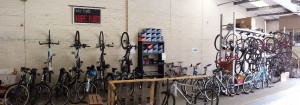As Travel Plan Coordinator you might also be on the look out for bikes to suit a range of needs for a bike pool. Cost needn’t be a major issue since many bike shops sell good second hand bikes for less than £100.
Different types of bike:
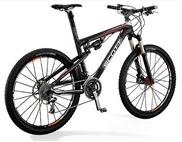
Mountain Bikes - Although initially built for off road-riding, mountain bikes have evolved and are now a common sight in towns and cities throughout the country. Prices range enormously depending on what the individual is looking for and the manufacturer of the bike. Expect to pay a minimum of £100 for a basic mountain bike that has limited capabilities off road, to over £5,000 for a top of the range model that is light, well built and able to function off road. Mountain bikes aren't always ideal as commuter bikes as they can be hard going on tarmac due to tyre width and tread.
Racing Bikes - Different from mountain bikes in that they have thinner tyres and drop handlebars built for speed as opposed to the rugged off road terrain. At their best on smooth surfaces but not ideal for the daily commute. The price range is once again extensive depending on manufacturer and specification.
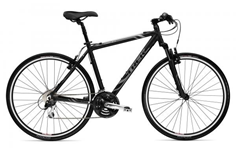
Hybrid Bikes - Hybrid bikes have become extremely popular over recent years possessing the strength of a mountain bike with the speed of racing bikes. Excellent for using as a commuter bike or for leisure purposes, the hybrid offers a more practical alternative to bicycle riding.
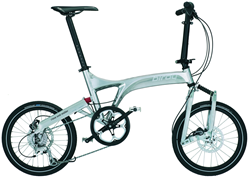
Folding Bikes - Regular bikes can often be awkward to transport on public transport and store at home or at the workplace. Folding bikes are now being designed in a range of styles but generally have far smaller tyres than normal bikes and with different frame styles. Folding bikes have been manufactured with space saving in mind and can fit into a bag that can conveniently fit into the boot of a car or on a bus/ train. Prices range from under £100 for basic models to thousands depending on style, design and manufacturer.
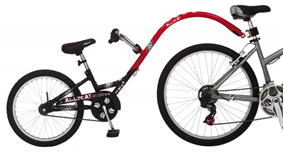
Trailer Bikes - Again, perhaps not ideal for the daily commute but trailer bikes normally have a quick release mechanism releasing the rear portion of the bike. An adult could quite happily cycle with his/ her child to do the school run and then release the rear portion and allow a smooth ride to the workplace.
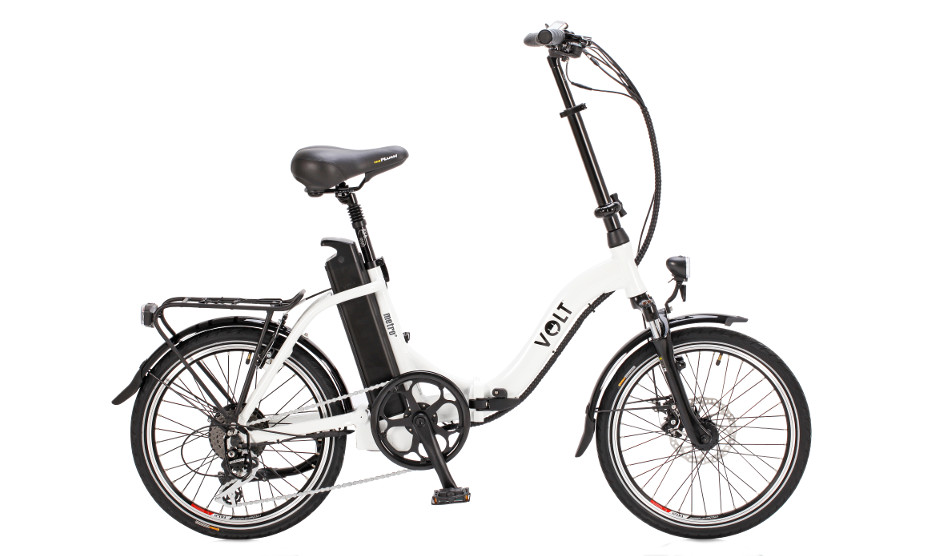 Electric Bikes -
Electric Bikes - an electrically-assisted bike gives you extra energy for your cycle commute to work, so you can undertake journeys that might be too strenuous otherwise. An e-bike is quiet, doesn't emit harmful gasses, and costs pennies to run. Most of those for sale in the UK are pedelecs. They don't have a throttle: you pedal as normal and the bike augments your efforts. You choose how much help you get with a handlebar-mounted control. Pedelecs are more expensive than bicycles due to the cost of the motor, the rechargeable Lithium-Ion battery, and the controls.
Even a budget pedelec retails for around £1,000, right at the limit for Cycle to Work savings for most employees. You can nevertheless get a more expensive model through
Cyclescheme. You simply pay the retailer the difference between the retail price and £1,000, then make the usual salary sacrifice savings on the remaining £1,000.
Used Bikes - Re-using bikes is becoming more and more common, in particular where finding places to secure more expensive bikes is difficult. Used bikes are a good option for new cyclists or people who need a basic bike for everyday use as they are cheap and often well maintained.
There are a number of organisations offering used bikes.
The Bike Station is a charity in Edinburgh promoting and recycling bicycles. They repair unwanted bikes and sell them for a reduced fee to people wishing to get involved in cycling.
The Bike Station also has branches in Glasgow and Perth.

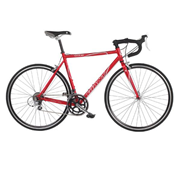



 Electric Bikes - an electrically-assisted bike gives you extra energy for your cycle commute to work, so you can undertake journeys that might be too strenuous otherwise. An e-bike is quiet, doesn't emit harmful gasses, and costs pennies to run. Most of those for sale in the UK are pedelecs. They don't have a throttle: you pedal as normal and the bike augments your efforts. You choose how much help you get with a handlebar-mounted control. Pedelecs are more expensive than bicycles due to the cost of the motor, the rechargeable Lithium-Ion battery, and the controls.
Electric Bikes - an electrically-assisted bike gives you extra energy for your cycle commute to work, so you can undertake journeys that might be too strenuous otherwise. An e-bike is quiet, doesn't emit harmful gasses, and costs pennies to run. Most of those for sale in the UK are pedelecs. They don't have a throttle: you pedal as normal and the bike augments your efforts. You choose how much help you get with a handlebar-mounted control. Pedelecs are more expensive than bicycles due to the cost of the motor, the rechargeable Lithium-Ion battery, and the controls.